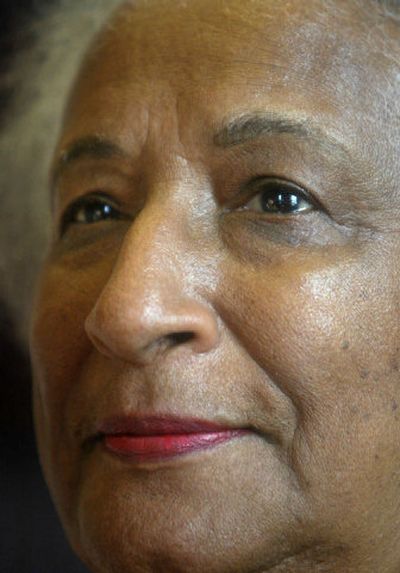Judge Motley had key role in legal fight for civil rights

NEW YORK – Federal Judge Constance Baker Motley, who as a young lawyer represented Martin Luther King Jr. and played a pivotal role in the nation’s civil rights struggle, has died. She was 84.
Motley died Tuesday, said Chief Judge Michael Mukasey in U.S. District Court in Manhattan, where she served. She had been working on cases last week before she was hospitalized.
Motley’s career found her fighting in many of the nation’s landmark segregation cases. After a brief political career, she became the first black woman appointed to the federal bench in 1966.
“She’s going to be missed,” Mukasey said. “She is a person of a kind and stature the likes of which they’re not making anymore.”
Motley was born in New Haven, Conn., the ninth of 12 children. Her mother, Rachel Baker, was a founder of the New Haven NAACP. Her father, Willoughby Alva Baker, worked as a chef for student organizations at Yale University.
Her interest in civil rights grew after she was turned away at age 15 from a public beach because she was black.
“Judge Motley had the strength of a self-made star,” Judge Kimba Wood said.
Motley earned a degree in economics in 1943 from New York University, and three years later, got her law degree from Colombia Law School.
In 1945, she became a law clerk to Thurgood Marshall, then became chief counsel of the NAACP’s Legal Defense and Educational Fund. Over the next two decades, she worked on some of the nation’s most famous civil rights cases, including preparing the draft complaint in 1950 for what would become Brown vs. Board of Education.
In her autobiography, “Equal Justice Under Law,” Motley said defeat never entered her mind. “We all believed that our time had come and that we had to go forward.”
The Supreme Court ruled in her and her colleagues’ favor in May 1954 in a decision credited with toppling public segregation in America. The ruling, though, touched off resistance across the country and led to some of the racial clashes of the 1960s and more litigation.
At the heart of much of it was Motley, from a case in Little Rock, Ark., in 1957 that led President Eisenhower to call in federal troops to protect nine black high school students, to leading the legal charge to win James Meredith’s entry into the University of Mississippi in 1962.
Also in the early 1960s, she successfully argued for 1,000 school children to be reinstated in Birmingham, Ala., after the local school board had expelled them for demonstrating. She represented so-called “Freedom Fighters” who rode interstate buses to test the success of desegregation laws. During this time, she represented King as well.
From 1961 to 1964, Motley won nine of 10 civil rights cases she argued before the Supreme Court.
In 1965, she became the first woman president of the borough of Manhattan, where she worked to decrease racial segregation in public schools.
In 1966, President Johnson nominated her to the federal bench in Manhattan. She was confirmed nine months later, though her appointment was opposed by conservative federal judges and southern politicians.
Over the next four decades, Motley handled a number of civil rights cases, including her decision in 1978 allowing a female reporter to be admitted to the New York Yankees’ locker room.
Motley is survived by her husband and son.